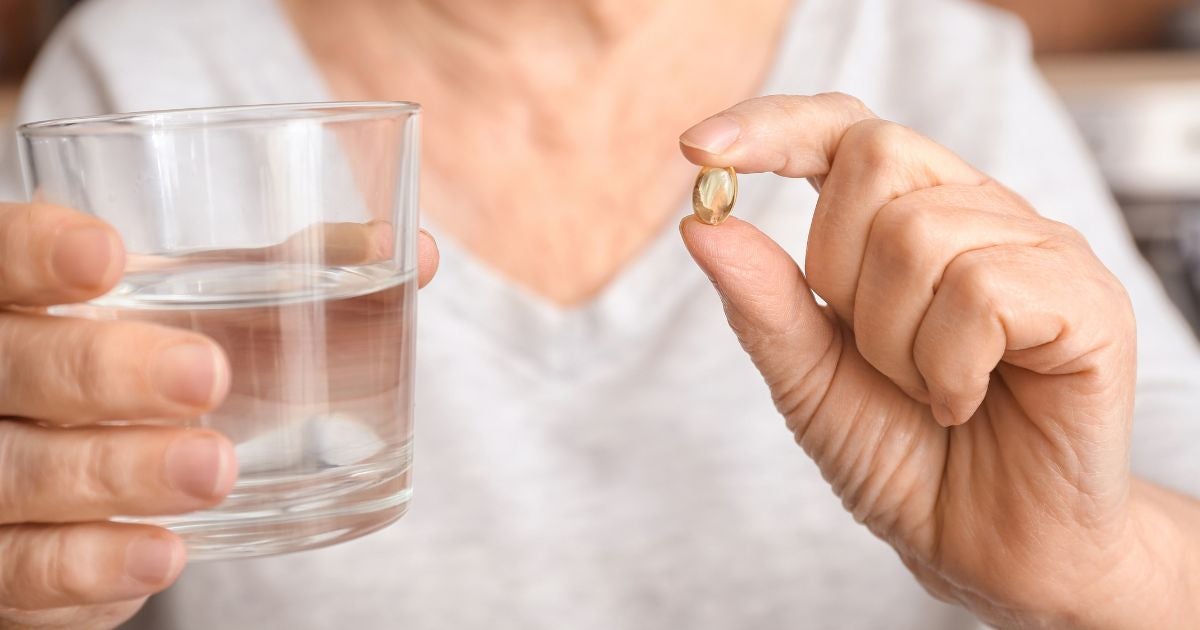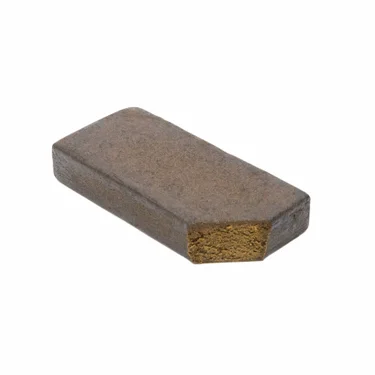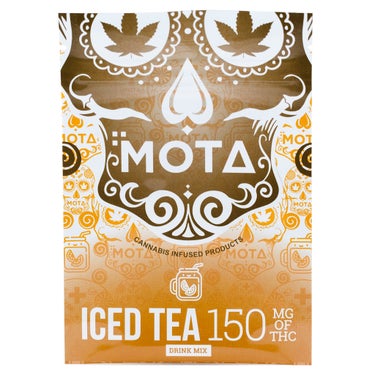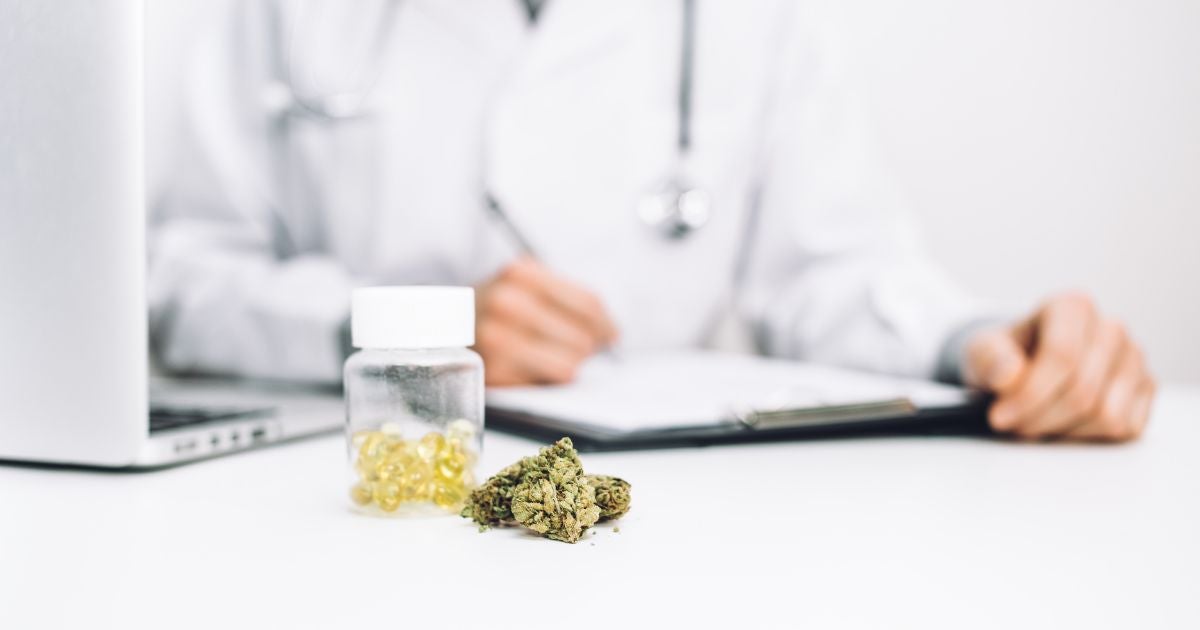Table of Contents
In recent years, there has been growing interest in the potential benefits of CBD vs. THC for managing Parkinson’s disease.
Parkinson’s is a neurodegenerative disorder that affects millions of people worldwide, causing a range of motor and non-motor symptoms. While traditional treatments can help manage symptoms, there is increasing curiosity about the potential of cannabinoids in providing relief. This article will delve into the distinctions between CBD (cannabidiol) and THC (tetrahydrocannabinol) and explore their potential benefits for individuals with Parkinson’s.
CBD and Parkinson’s: Exploring Potential Benefits
CBD, or cannabidiol, has gained significant attention for its potential benefits in managing symptoms of Parkinson’s disease. Let’s dive into some of the key benefits and explore how CBD may offer relief and support for individuals with Parkinson’s.
-
Relief from Motor Symptoms
Parkinson’s disease often manifests with motor symptoms such as tremors, stiffness, and difficulties with movement. Studies have shown that CBD may help alleviate these symptoms by interacting with the body’s endocannabinoid system, which plays a role in regulating movement.
For example, a study published in the Journal of Clinical Pharmacy and Therapeutics found that individuals with Parkinson’s who used CBD experienced a significant reduction in tremors and improved motor function. This improvement in motor symptoms can greatly enhance the quality of life for those living with Parkinson’s.
-
Reduction of Inflammation
Inflammation in the brain is believed to contribute to the progression of Parkinson’s disease. CBD has been shown to possess anti-inflammatory properties, which may help mitigate inflammation and provide neuroprotective effects.
By reducing inflammation, CBD may help slow down the degenerative process and potentially protect brain cells from damage.
-
Management of Non-Motor Symptoms
Parkinson’s is not solely defined by motor symptoms. Non-motor symptoms, such as anxiety, depression, and sleep disturbances, can significantly impact the well-being of individuals with Parkinson’s. CBD has shown promise in addressing these non-motor symptoms.
A study published in the European Journal of Pain explored the effects of CBD on anxiety and sleep in individuals with Parkinson’s disease. The results indicated that CBD treatment significantly reduced anxiety levels and improved sleep quality. By addressing these non-motor symptoms, CBD may contribute to overall emotional well-being and enhance the daily lives of Parkinson’s patients.
-
Potential Neuroprotective Effects
Parkinson’s disease involves the degeneration of dopamine-producing neurons in the brain. CBD has been investigated for its potential neuroprotective properties, meaning it may help protect brain cells from further damage or degeneration.
-
Mitigation of Medication Side Effects
Individuals with Parkinson’s often rely on various medications to manage their symptoms. However, these medications can come with unwanted side effects, such as nausea, vomiting, and dyskinesia (involuntary movements).
CBD has shown promise in mitigating some of these medication side effects. For instance, a study published in the Journal of Psychopharmacology investigated the effects of CBD on dyskinesia in Parkinson’s patients. The results revealed that CBD treatment significantly reduced dyskinesia severity without compromising the therapeutic benefits of the existing medications.
-
Enhanced Quality of Life
Perhaps one of the most significant benefits of CBD for individuals with Parkinson’s is the potential to improve overall quality of life. By alleviating symptoms, reducing inflammation, and addressing non-motor issues, CBD can enhance daily functioning and emotional well-being.
It’s important to note that while CBD shows promise in managing symptoms and enhancing quality of life, it is not a cure for Parkinson’s disease. It is always recommended to consult with healthcare professionals before incorporating CBD or any other treatments into a Parkinson’s management plan.
THC and Parkinson’s: Exploring Potential Benefits
THC, or delta-9-tetrahydrocannabinol, is another compound found in cannabis that has been studied for its potential benefits in managing symptoms of Parkinson’s disease. Let’s explore some of the potential benefits of THC and how it may offer relief and support for individuals with Parkinson’s.
-
Muscle Relaxation and Tremor Reduction
One of the primary symptoms of Parkinson’s disease is muscle stiffness and tremors. THC has muscle relaxant properties that may help alleviate these symptoms. It interacts with the endocannabinoid system, which plays a role in regulating muscle tone and movement.
-
Pain Relief
Chronic pain is a common companion of Parkinson’s disease, and finding effective pain management strategies is crucial for improving the quality of life for individuals with the condition. THC has analgesic properties that can help alleviate pain associated with Parkinson’s.
-
Improvement in Sleep
Sleep disturbances are prevalent in Parkinson’s disease and can significantly impact the well-being of individuals with the condition. THC has been studied for its potential to improve sleep quality and address sleep-related issues.
-
Appetite Stimulation
Loss of appetite and weight loss are common challenges faced by individuals with Parkinson’s disease. THC has been known to stimulate appetite, commonly referred to as “the munchies,” which may help individuals regain their appetite and maintain a healthy weight.
-
Mood Elevation
Depression and anxiety are non-motor symptoms often experienced by individuals with Parkinson’s. THC has the potential to elevate mood and provide relief from these symptoms.
-
Potential Neuroprotective Effects
Parkinson’s disease involves the degeneration of dopamine-producing neurons in the brain. THC has been studied for its potential neuroprotective properties, meaning it may help protect brain cells from further damage or degeneration.
It’s important to note that THC has psychoactive properties and can induce euphoria and alter perception. It may not be suitable for everyone, and individual responses to THC can vary. It’s crucial to consult with healthcare professionals before considering THC as a part of Parkinson’s management.
CBD vs. THC: Key Differences
CBD (cannabidiol) and THC (delta-9-tetrahydrocannabinol) are two of the most well-known compounds found in cannabis. While they share some similarities, there are key differences between CBD and THC that are important to understand, especially when considering their potential benefits for Parkinson’s disease. Let’s explore these differences in more detail.
-
Jungle Ridge – Mazar-I-Sharif Hash
$29.70 – $198.00 Select options This product has multiple variants. The options may be chosen on the product page -
Oso Fuego – Premium Domestic Afghani Hash
$55.28 – $368.50 Select options This product has multiple variants. The options may be chosen on the product page -
MOTA – THC Canna Cocoa (150mg)
-
MOTA – THC Iced Tea (150mg)
-
MOTA – CBD White Clear Sphere (100mg)
-
Psychoactive Effects
One of the primary distinctions between CBD and THC is their psychoactive properties. THC is the compound responsible for the “high” or euphoric sensation often associated with cannabis use. It binds to cannabinoid receptors in the brain, resulting in altered perception, mood changes, and a sense of relaxation.
On the other hand, CBD is non-psychoactive, meaning it does not produce a euphoric effect or alter one’s state of mind. It does not bind strongly to cannabinoid receptors, and its interaction with the endocannabinoid system is more complex. CBD is often sought after for its potential therapeutic benefits without inducing the psychoactive effects associated with THC.
-
Legal Status
The legal status of CBD and THC can vary depending on jurisdiction. THC, being psychoactive, is often subject to stricter regulations and is classified as a controlled substance in many places. However, some regions have legalized the medical and/or recreational use of THC within certain parameters.
CBD, on the other hand, has seen a significant shift in legal status in recent years. It is now legal in many countries and states, either for medical use, recreational use, or both. However, it’s important to note that regulations can still vary, so it’s essential to check the specific laws in your area.
-
Source and Availability
CBD and THC can be derived from both cannabis plants and hemp plants. Cannabis plants are typically higher in THC content and lower in CBD, while hemp plants contain higher levels of CBD and trace amounts of THC (0.3% or less in the United States).
Due to the difference in legal status and THC content, CBD products are generally more widely available compared to THC products. CBD can be found in various forms, including oils, tinctures, capsules, topicals, and edibles. THC products, particularly those with higher THC concentrations, are typically available in regions where cannabis is legal for recreational or medical use.
-
Potential Side Effects
Both CBD and THC can have side effects, although they differ in nature and intensity. Common side effects of THC include dry mouth, red eyes, impaired memory, increased heart rate, and coordination difficulties. Some individuals may also experience anxiety or paranoia, especially at higher doses or if they are sensitive to the psychoactive effects.
CBD, on the other hand, is generally well-tolerated, with minimal side effects reported. Some individuals may experience mild effects such as dry mouth, lightheadedness, or drowsiness, but these are typically temporary and subside with time.
-
Drug Testing Considerations
Another important difference between CBD and THC is their impact on drug tests. THC use can result in a positive drug test for cannabis, as standard drug tests typically detect THC or its metabolites. Therefore, individuals using THC products should be aware of the potential implications, especially if they are subject to employment or legal drug testing.
CBD, especially when derived from hemp plants, generally does not result in a positive drug test for THC. However, it’s essential to ensure that the CBD product used is free of THC or contains THC within the legal limits to avoid any potential complications.
-
Synergistic Effects
CBD and THC can also interact with each other in what is known as the “entourage effect.” This refers to the theory that the combination of different cannabinoids, terpenes, and other compounds found in cannabis may have a synergistic effect, potentially enhancing their therapeutic benefits.
Some individuals may choose to use CBD and THC together to take advantage of this entourage effect. However, the specific ratio and dosage should be carefully considered and discussed with healthcare professionals to achieve the desired results.
CBD and THC have distinct differences in their psychoactive properties, legal status, source and availability, potential side effects, drug testing considerations, and potential synergistic effects. Understanding these differences can help individuals make informed decisions regarding the use of these compounds for Parkinson’s disease or other health conditions.
Conclusion
CBD and THC offer promising potential benefits for individuals with Parkinson’s disease, but further research is needed to fully understand their effectiveness and safety. CBD, derived from the cannabis plant, has shown anti-inflammatory and neuroprotective properties that may help alleviate symptoms such as tremors, rigidity, and sleep disturbances. THC, on the other hand, may provide relief from pain and muscle stiffness. However, it is important to consider the psychoactive effects of THC and the legal restrictions surrounding its use. Consulting with healthcare professionals and staying informed about current research findings is essential when considering CBD and THC as treatment options for Parkinson’s disease.
FAQs
How does THC affect Parkinson’s?
THC’s effects on Parkinson’s disease are still being studied, and research is limited. Some anecdotal reports suggest that THC may help manage symptoms such as pain and muscle stiffness. However, it is important to consider the psychoactive properties of THC and potential legal restrictions in certain regions.
Is CBD oil good for dystonia?
CBD oil has shown promise in managing dystonia symptoms in some individuals. Dystonia is a movement disorder characterized by involuntary muscle contractions. CBD’s potential anti-inflammatory and muscle relaxant properties may help alleviate muscle spasms and reduce the severity of dystonic movements. However, further research is needed to fully understand the effects of CBD oil on dystonia.
Can I take CBD oil with Sinemet?
It is essential to consult with a healthcare professional before combining CBD oil with any medication, including Sinemet. CBD has the potential to interact with certain enzymes in the liver responsible for metabolizing drugs, including Sinemet. A healthcare professional can provide guidance on potential interactions, appropriate dosages, and any precautions or adjustments that may be necessary.
How much CBD should a Parkinson’s patient take?
The optimal dosage of CBD for Parkinson’s disease can vary from person to person. It is recommended to start with a low dosage and gradually increase it while closely monitoring the effects. Working with a healthcare professional experienced in cannabinoid therapies can help determine the appropriate dosage based on individual factors such as weight, symptom severity, and sensitivity to CBD.
How does CBD help with Parkinson’s tremors?
CBD’s potential benefits for Parkinson’s tremors are not yet fully understood, and further research is needed. However, some studies and anecdotal evidence suggest that CBD’s interaction with the endocannabinoid system may help regulate movement and reduce the frequency and severity of tremors. CBD’s anti-inflammatory and neuroprotective properties may also play a role in mitigating tremors, but more research is necessary to establish its efficacy and optimal usage for this specific symptom.








